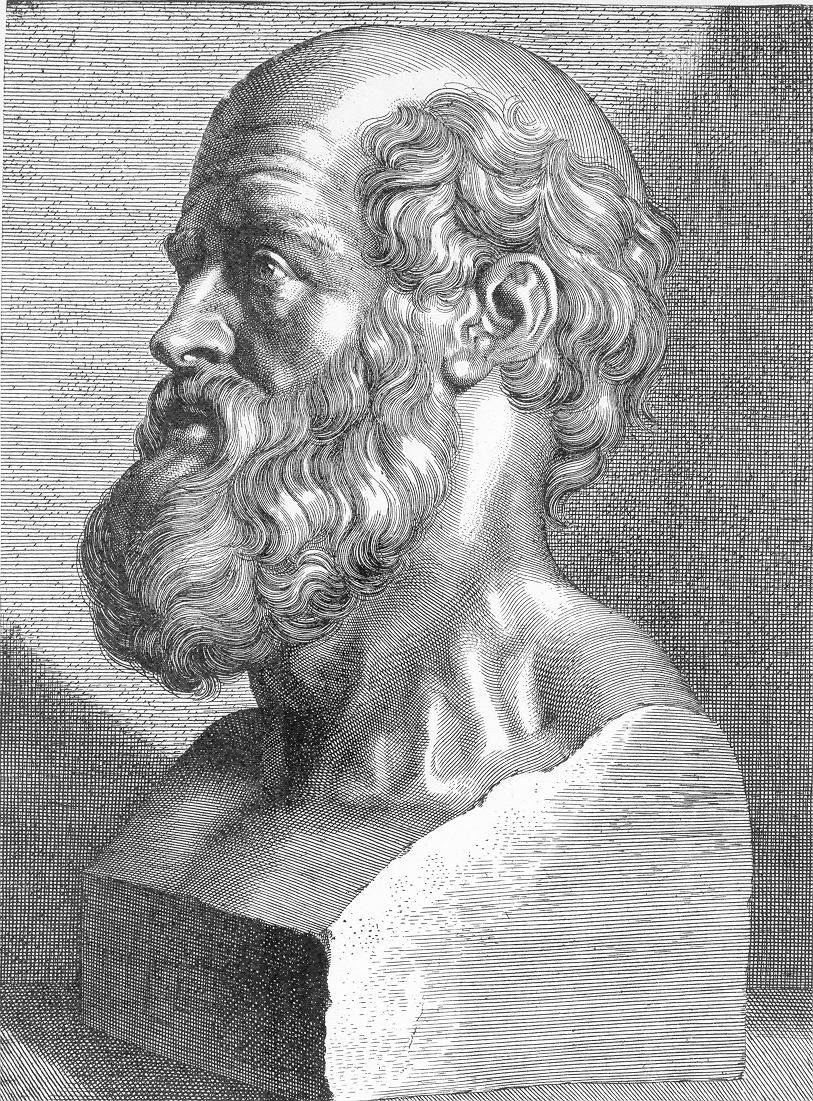
Known today as the father of medicine, proposed the Humoral Theory of Medicine, which states that the body is composed of four fluids, or humors: blood, phlegm, yellow bile, and black bile. Any imbalance of these fluids was thought to cause disease. He attributed cancer to an excess of black bile. Hippocrates was the first to use the words "carcinos" and "carcinoma" to describe tumors, and hence the term "cancer" was coined. "Cancer" is derived from the Greek word "karkinos," or crab, which is thought to reference the appearance of blood vessels on tumors resembling a crab's claws reaching out. He believed that it was best to leave cancer alone because those who got treatment didn't survive as long.1, 2, 3
- 1 Morton, Leslie T., and Moore, Robert J. A Chronology of Medicine and Related Sciences. Aldershot, England: Scholar Press, 1997
- 2 The American Cancer Society Inc., "The History of Cancer." 25 Mar. 2002. 13-17 Accessed October 2010 [http://www.cancer.org/Cancer/CancerBasics/TheHistoryofCancer/the-history-of-cancer-cancer-causes-theories-throughout-history]
- 3 Udwadia, Farokh Erach. Man and Medicine: A History. Oxford: Oxford University Press, 2000.
